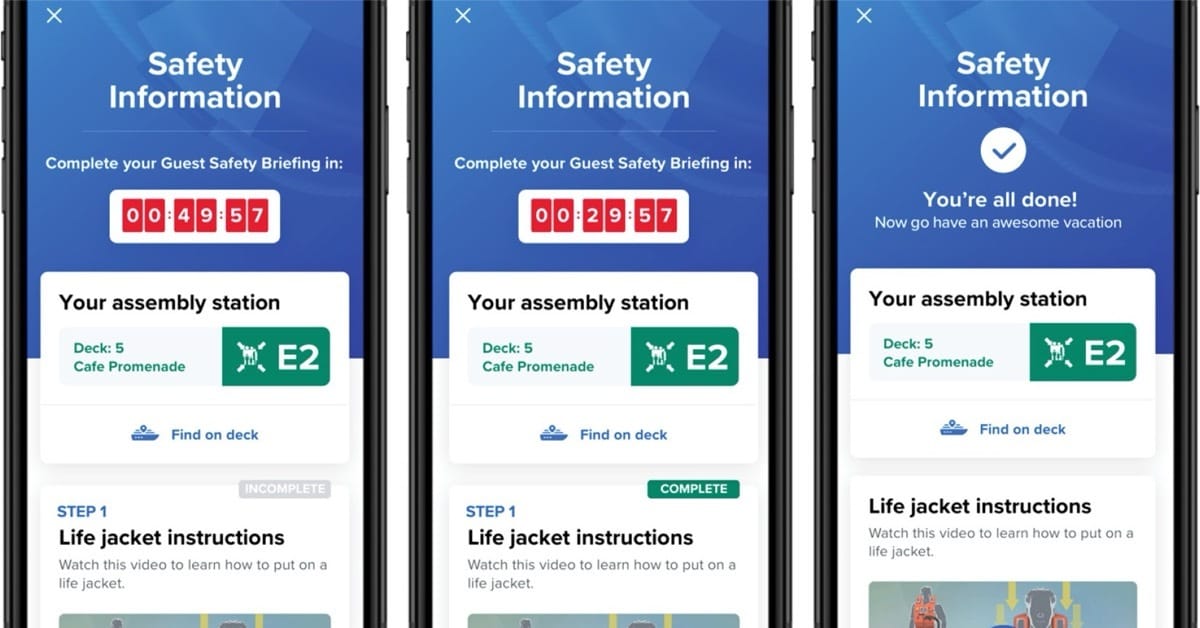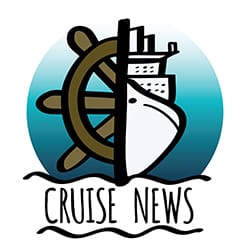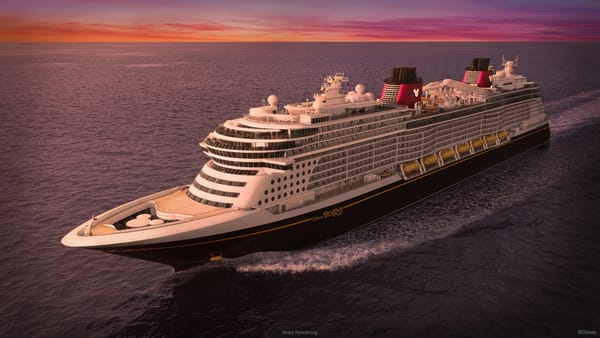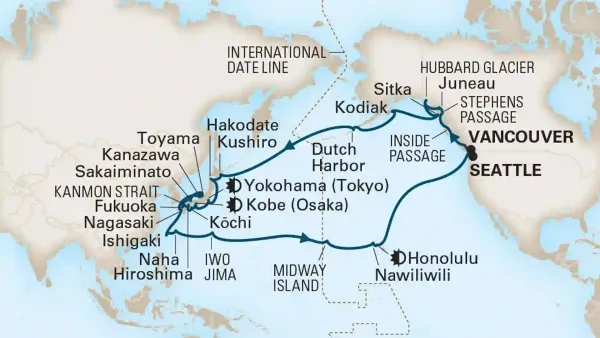Royal Caribbean's virtual muster drill enhances safety

The cruise industry has undergone significant transformations since the onset of the COVID-19 pandemic, particularly in how safety measures are communicated to passengers. One notable change is the adoption of the virtual muster drill, a process that not only maintains safety protocols but also enhances the overall passenger experience. This innovation has allowed cruise lines like Royal Caribbean and Carnival to address persistent frustrations associated with traditional muster drills.
Understanding the Traditional Muster Drill
Before the pandemic, muster drills were a routine part of every cruise. Passengers were required to gather at designated muster stations before the ship set sail to receive safety instructions. These drills, mandated by the Coast Guard, aimed to educate passengers on where to go in case of an emergency and how to properly wear a life jacket.
This crucial safety procedure often became a source of annoyance for many. The drills couldn’t commence until all passengers were present, which sometimes resulted in lengthy delays, especially if certain individuals were unaware of the requirement or were delayed due to onboard festivities.
The Challenges of Traditional Drills
For passengers, the muster drill could be quite discomforting. Those assigned to outdoor muster stations often had to endure the elements, leading to dissatisfaction among those who arrived on time. This situation was compounded by the fact that some passengers might have consumed alcohol before the drill, further complicating attendance.
Overall, while essential for safety, the traditional muster drill was often seen as an inconvenient necessity, overshadowing the excitement of the cruise experience.
The Impact of COVID-19 on Cruising
As the pandemic unfolded, cruise lines faced unprecedented challenges, including how to manage safety protocols. With social distancing becoming a critical requirement, traditional muster drills were rendered impractical.
The industry had to rethink how they communicated safety information to passengers without compromising health protocols. This led to innovative solutions aimed at improving the passenger experience while maintaining safety standards.
Introduction of the Virtual Muster Drill
In response to these challenges, Royal Caribbean and Carnival introduced the virtual muster drill, an initiative that has transformed the way safety information is communicated aboard cruise ships. The shift to virtual drills was not merely a temporary fix but a reimagining of the passenger safety experience.
Instead of gathering in person, passengers can now view safety videos on their personal devices. Upon boarding the ship, they simply check in at their muster station, providing a streamlined process that respects both safety and convenience.
Benefits of the Virtual Muster Drill
The adoption of the virtual muster drill has received enthusiastic feedback from passengers. Many have expressed their preference for this innovative approach, which eliminates the inconvenience associated with traditional drills.
Passengers are now able to familiarize themselves with safety protocols at their own pace, reducing the likelihood of missing the drill due to delays or distractions. This flexibility is a significant improvement over the rigid timing of the traditional muster drill.
Passenger Reception
Feedback from guests has been overwhelmingly positive, with many praising the virtual muster drill for enhancing the cruising experience. Comments shared on social media and travel forums reveal a collective appreciation for this new format.
"I was a huge fan of this when I sailed in January. Such an incredibly better experience than the traditional muster drills," said one passenger, echoing a common sentiment among cruisers.
The Future of Muster Drills in Cruising
Royal Caribbean and Carnival's commitment to sustaining the virtual muster drill post-COVID highlights a commitment to continuous improvement in guest experience. This approach aligns with broader industry trends toward enhancing passenger comfort while ensuring safety compliance.
While some cruise lines, such as MSC Cruises, continue to experiment with modified traditional drills, the prevailing trend appears to favor virtual solutions. As cruise lines adapt, they are likely to prioritize technologies that improve efficiency and passenger satisfaction.
Conclusion
In summary, the shift to a virtual muster drill represents a significant advancement in how cruise lines approach passenger safety. This change has not only addressed long-standing passenger frustrations associated with traditional drills but has also set a new standard for how safety measures can be effectively communicated while enhancing the overall cruise experience.
Frequently Asked Questions
1. What is a virtual muster drill?
A virtual muster drill is a process where passengers can view safety videos on their devices instead of attending a traditional in-person safety meeting. This allows for a more flexible and convenient way to receive important safety instructions.
2. Why was the traditional muster drill replaced?
The traditional muster drill was replaced to improve efficiency and comfort for passengers, especially during the COVID-19 pandemic. Virtual drills allow for better adherence to social distancing and reduce the inconvenience of gathering large groups together.
3. Which cruise lines use virtual muster drills?
Royal Caribbean and Carnival are leading the way with the implementation of virtual muster drills. Other lines may still use a version of the traditional drill, but these two companies have committed to maintaining the virtual format.
4. How do passengers participate in a virtual muster drill?
Passengers participate by watching safety videos on their smartphones or devices soon after boarding. They then check in at their muster station, who optionally may still receive a live demonstration if they prefer.
5. What are the advantages of a virtual muster drill?
The advantages include increased convenience, flexibility, and a better overall experience for passengers. Additionally, virtual drills eliminate delays caused by missing passengers, allowing for a smoother embarkation process.




